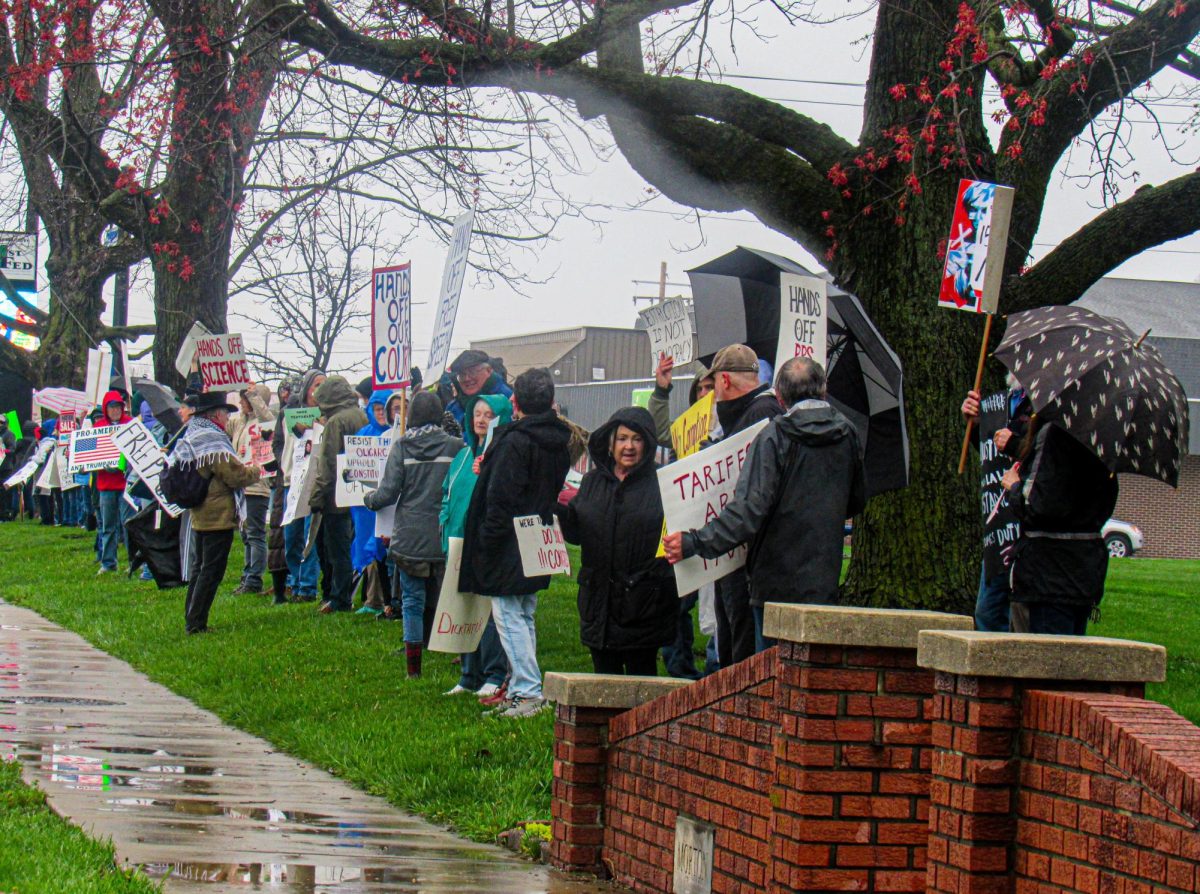Opinion: Tipped employees need higher wages
January 28, 2020
Tipped employees should get paid minimum wage (or higher, if employers choose) in addition to the tips they earn. This should apply everywhere in the U.S.
Under the federal Fair Labor Standards Act, employers can pay their tipped employees at minimum $2.13 an hour.
In other states, including Illinois, employers must pay a minimum cash wage above $2.13, but it can still be well below the state’s minimum wage.
However, this doesn’t mean employers can get away with only paying their tipped employees $2.13 an hour — people need to make minimum wage. That means if an employee makes less than $9.25 per hour (in Illinois as of January 2020) during his or her shift in combined tips and minimum pay, the employer has to give a tip credit to make up the difference (that credit is maxed at $5.12 under the FLSA).
There are also special rules that consider factors like businesses’ size and gross income, and some states have different laws that certainly have an effect on these wages.
From there, it’s up to the employers to decide whether or not they want to enforce a tip pool, wherein the employees have to share their tips with others.
Tipped employees should earn their states’ minimum wages on top of the tips they earn.
It is customary in the U.S. to tip our waiters and waitresses, barbers and hairstylists, and others working in certain service industries.
But while it is customary, it is not required.
It doesn’t matter how impeccable the service is. At the end of the day, the customer does not have to tip.
Illinois and every other state should join the other seven that are required to pay their employees full-state minimum wages before tips.
Besides the fact that tips are not guaranteed, I believe it would improve the livelihoods of a large demographic of working individuals who are likely close to the federal poverty threshold ($12,760 a year for households with one person).
Many employers choose to maintain their employees in part-time positions to avoid having to provide benefits.
This means some tipped employees are working just under 40 hours a week, make minimum wage and do not qualify for benefits.
Making this pay adjustment a requirement would also likely improve more workers’ quality of service.
If employees are guaranteed to make a minimum wage in addition to tips, they’re not as worried about their salaries; there’s a higher money-making potential there.
Where quality of life improves, quality of service is likely to improve, too.
And let’s face it; this country has a longstanding prejudice against minimum-wage workers.
They are hardly even allowed 30-minute breaks during 8- or 9-hour shifts.
We need to respect our service workers, and while making this pay requirement wouldn’t put an end to the unfair prejudices, it would still have some positive impact.
Logan Raschke is a senior journalism major. She can be reached at 581-2812 or at lrraschke@eiu.edu







![[Thumbnail Edition] Charleston High School sophomore Railyn Cox pitches the ball during Charleston's 8-7 win over Flora High School on Monday, March 31.](https://www.dailyeasternnews.com/wp-content/uploads/2025/04/SBHS_01_O-1-e1743982413843-1200x1023.jpg)
![[Thumbnail Edition] Eastern Illinois softball senior infielder Briana Gonzalez resetting in the batter's box after a pitch at Williams Field during Eastern’s first game against Southeast Missouri State as Eastern split the games as Eastern lost the first game 3-0 and won the second 8-5 on March 28.](https://www.dailyeasternnews.com/wp-content/uploads/2025/04/SBSEMO_11_O-1-e1743993806746-1200x692.jpg)




![[Thumbnail Edition] Junior right-handed Pitcher Lukas Touma catches at the game against Bradley University Tuesday](https://www.dailyeasternnews.com/wp-content/uploads/2025/03/MBSN_14_O-e1743293284377-1200x670.jpg)
![[Thumbnail Edition] Senior Foward Macy McGlone, getsw the ball and gets the point during the first half of the game aginst Western Illinois University,, Eastern Illinois University Lost to Western Illinois University Thursday March 6 20205, 78-75 EIU lost making it the end of their season](https://www.dailyeasternnews.com/wp-content/uploads/2025/03/WBB_OVC_03_O-1-e1743361637111-1200x614.jpg)







































![The Weeklings lead guitarist John Merjave [Left] and guitarist Bob Burger [Right] perform "I Am the Walrus" at The Weeklings Beatles Bash concert in the Dvorak Concert Hall on Saturday.](https://www.dailyeasternnews.com/wp-content/uploads/2025/03/WL_01_O-1200x900.jpg)
![The team listens as its captain Patience Cox [Number 25] lectures to them about what's appropriate to talk about through practice during "The Wolves" on Thursday, March 6, in the Black Box Theatre in the Doudna Fine Arts Center in Charleston, Ill.](https://www.dailyeasternnews.com/wp-content/uploads/2025/03/WolvesPre-12-1200x800.jpg)














